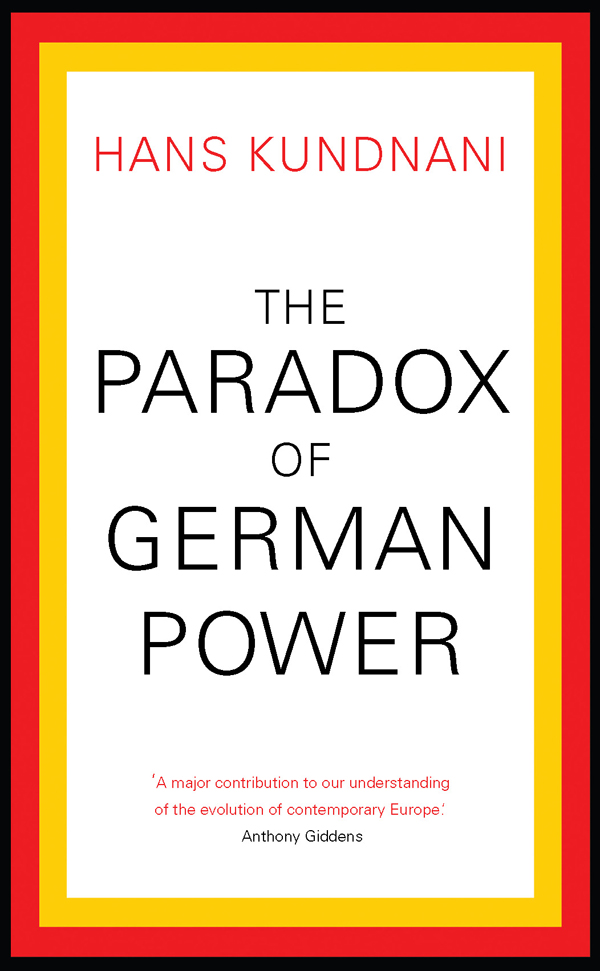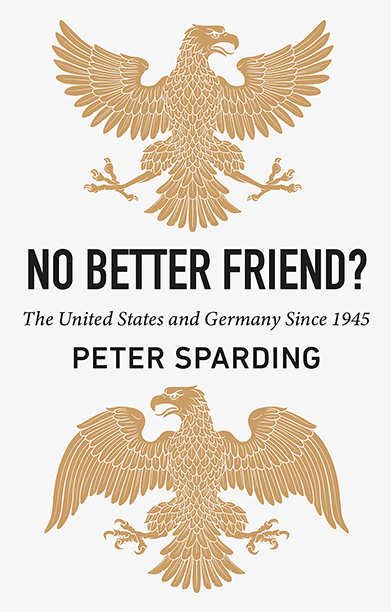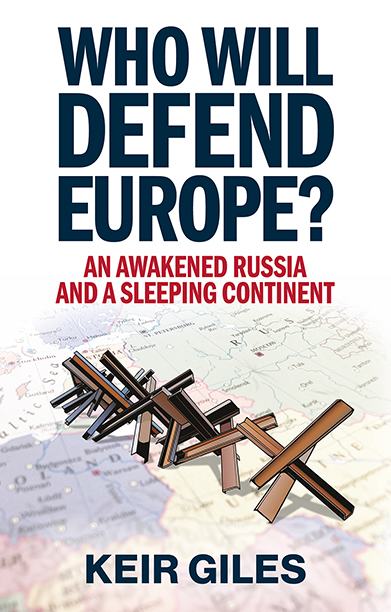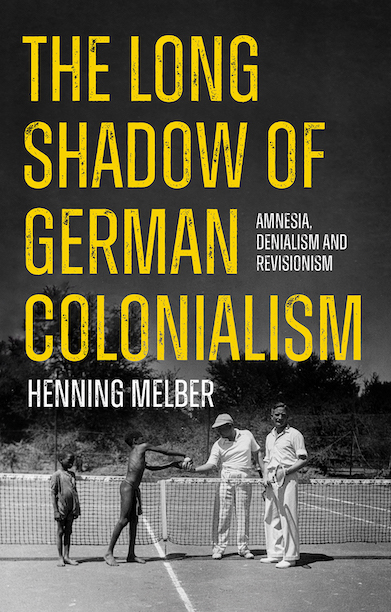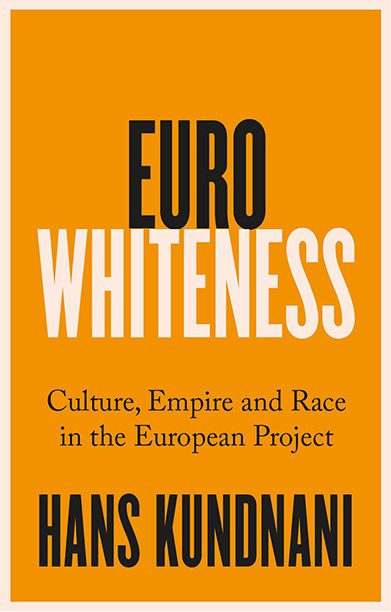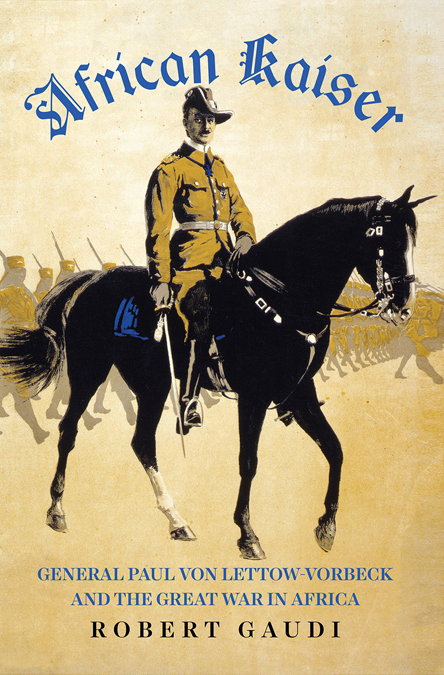The Paradox of German Power
Kundnani dissects the conflicting pressures at play in Germany today and how these influence its politics, economic strategy and foreign policy.
Revised and updated paperback out now.
Description
A ‘German Europe’ seems to have emerged from the euro crisis. During the last few years, Chancellor Angela Merkel has been compared with Hitler in the European media and on the streets of European capitals. There has been much debate about German ‘hegemony’ and some have even perceived the emergence of a kind of German ’empire’ within Europe. And yet Germany is clearly a different country than it was in the nineteenth or early twentieth century. So is there a new ‘German question’ and, if so, what is it?
In The Paradox of German Power Hans Kundnani explores the transformation of Germany since reunification in 1990 and puts it in the context of Germany’s pre-1945 history. He examines a series of tensions in German foreign policy — between continuity and change, between ‘normality’ and ‘abnormality’, between economics and politics, and between Europe and the world — and concludes that the ‘German question’ has reemerged in geo-economic form.
Reviews
‘A major contribution to our understanding of the evolution of contemporary Europe.’ — Anthony Giddens, House of Lords
‘[Kundnani argues] that today’s European Union is seeing a rerun of “the German question” that emerged after the founding of the Prussian empire. This time, Germany is not a military power but an economic one. Its economy is too dominant to preserve a stable balance with its eurozone and EU partners, yet too weak to enforce economic stability from above, he says. He calls it a “geo-economic semi-hegemon”, with the potential to cause a bitter and possibly disastrous conflict with its closest partners… his thesis is tempting.’ — Quentin Peel, The Financial Times
‘This is an intelligent, […] lively and well-written survey of recent German foreign policy and Hans Kundnani’s emphasis on Germany as a geo-economic power will be influential.’ — International Affairs
‘A punchy and persuasive survey of 150 years of German foreign policy … Kundnani’s conclusions are sobering. “The Europe that is emerging from the crisis,” he warns, “is not so much German as chaotic”.’ — The Wall Street Journal
‘A thoughtfully conceived, well-informed, and carefully researched history of the “German question” and its relevance for Europe’s future.’ — Geoff Eley, Karl Pohrt Distinguished University Professor of Contemporary History, University of Michigan
‘Germany has always been Europe’s most complex power. Hans Kundnani, who is already an authority on its recent history, sets out the “paradoxes of German power” today with characteristic verve. His account should be read by all opinion formers and politicians concerned with the future of our continent.’ —Brendan Simms, Professor in the History of International Relations, University of Cambridge and author of Unfinest Hour: Britain and the Destruction of Bosnia and Europe: The Struggle for Supremacy, 1453 to the Present
‘Hans Kundnani has written a thoughtful and provocative book, which challenges Germany’s present foreign policies head on and argues that Germany once more may have become a source of instability at the heart of Europe. He does so with a deep understanding of German history and the sharp eye of a sympathetic outsider. His book deserves to be read and thought through by anyone who cares about the future of Germany and Europe’. — Hanns W. Maull, Professor and Chair of Foreign Policy and International Relations, University of Trier
‘This is probably the best synthesis of the German question I’ve ever read.’ — Lucio Caracciolo, editor of Limes and founder of Heartland, Eurasian Review of Geopolitics
‘Observers of the German political scene already know Hans Kundnani as one of the most perceptive observers of Germany around. The Paradox of German Power is an historically informed, carefully considered, concise treatment of the evolution and contemporary nature of German foreign policy. It will surely cement Kundnani’s status as one of Europe’s top analysts of Germany.’ —Sheri Berman, Professor of Political Science, Barnard College, Columbia University
‘An examination of German foreign policy that is as critical as it is knowledgeable and empathetic — and one with great historical depth. You might not agree with the author’s view, but you should certainly take it seriously.’ — Hanns W. Maull, ‘Book of the Year’, Internationale Politik
‘In his wide-ranging book, Kundnani examines the exercise of German geo-economic power in Europe. He reviews the well-known history of “the German question”—the long-running debate about Germany’s proper role in Europe. He goes all the way back to the story of the country’s initial unification in 1871 and examines its postwar policies in order to show that present-day Germany is more straightforwardly self-interested than is commonly argued. … Germany, Kundnani argues, increasingly exercises a “semi-hegemonic” position, at least within Europe, due to its growing influence and tough diplomacy.’ — Foreign Affairs
‘A brilliant book with an exceptionally astute analysis. Hans Kundnani holds up a mirror to Germany that is as sympathetic as it is critical and asks questions that Germans should also be asking themselves.’ — Heinrich August Winkler
Author(s)
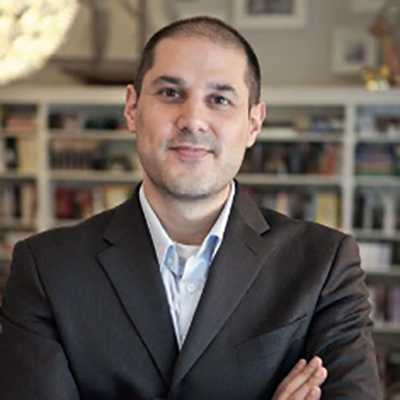
Hans Kundnani is an associate fellow and former Europe programme director at Chatham House, and the author of Utopia or Auschwitz; The Paradox of German Power; and Eurowhiteness, all published by Hurst. Hans writes regularly for The Observer, The Guardian, The New Statesman and Foreign Affairs, among others.
